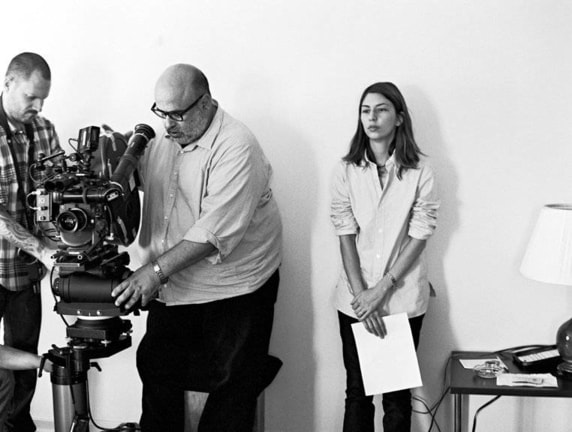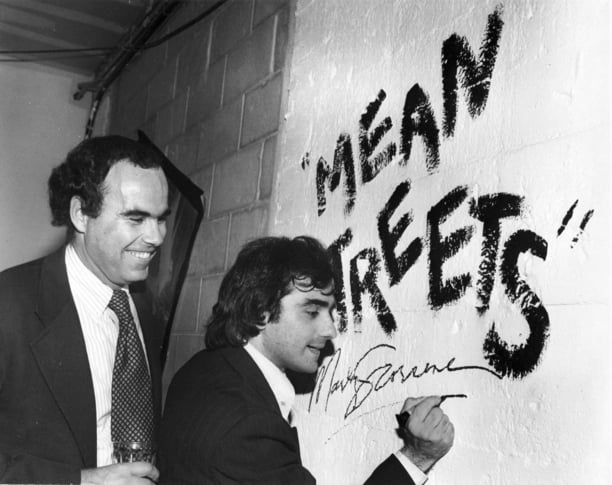We are able to identify the distinct writing styles of our favorite screenwriters. Styles that make us love their stories. Quentin Tarantino‘s masterful monologues. Aaron Sorkin‘s long sequences of quick-paced dialogue. Sofia Coppola‘s ethereal, stylistic realism. Their style is so distinct on the page that we as viewers can identify it on the screen.
It makes them stand out.
In the film industry, standing out can mean the difference between making it and breaking it. It’s what will make what you offer the industry unique. In such a competitive field, your distinctiveness is vital to not only breaking in but also in maintaining a career. It’s, therefore, crucial to find your style as a writer.
Table of Contents
Now, first things first…
What Is the Function of a Screenplay?
A screenplay is, in essence, the blueprint from which the filmmakers draw from in order to determine how the story will translate visually. It lays out the course of the story and outlines the personalities of the characters.
A well-written screenplay is clear and concise in its descriptions. Every line should move the story forward. Filler words, unnecessary greetings, and excessive exposition eat up space on the page and therefore are rarely tolerated. Your screenplay must be as brief as possible while still communicating everything anyone needs to know about the story.
No pressure.
There are character arcs, story structure, proper formatting, and about a dozen other things to consider when piecing the screenplay together. With all these technical boxes to check, it is easy for the inexperienced writer to place their own writing style on the back burner.
As functional as screenplays are, they are also a piece of art in and of themselves. Any piece of art must be executed by an artist, and any artist gains recognition because their delivery is in some way unlike that of anybody else.
What Makes Up a Writing Style?

The challenge of screenwriting is finding creativity amid the structure. In doing so, it is important not to compromise the structure, because that’s what holds everything together.
One’s writing style is the way they tell the story and, in many ways, it’s about mediating between the creative and the structural. It comes out in how intriguing the writer’s descriptions are, how their characters speak, and the overall feeling they evoke in their reader.
Your writing style is what marks you as a writer. So the first, most important quality that it must contain is YOU.
You, as the writer, are the investment because you are the only one who can tell the story a certain way. So in the same way writers must determine why their audiences should want to follow a certain protagonist, they must also recognize why those audiences would want to hear the story from them.
It all comes down to standing out.
Why Is It Important to Stand Out and How Do You Do It?
If you walk into a screenwriting classroom, the first and most common piece of advice you’ll receive is: “Write what you know.” You’ll hear this phrase so much it’ll haunt you, and the reason you’ll be hit over the head with it so many times is that it’s essential to curating your authenticity as a writer and, subsequently, your writing style.
Take this piece of advice with a grain of salt. It is that it is equal parts helpful to consider and important to not take too seriously.
Some famous filmmakers who wrote what they knew include:
- Martin Scorsese wrote films such as and Who’s That Knocking at My Door, which centers on Catholic identity. This topic is very personal to Scorsese, whose initial career ambition was to be a priest.
- Diablo Cody based the characters in Juno off of friends of hers from high school. Even the hamburger phone featured in the movie is based on one she herself had as a teenager.
- Charlie Kaufman was tasked with writing an adaptation of Susan Orlean’s The Orchid Thief, but struggled so much with the process that he instead wrote Adaptation as an exaggerated depiction of that experience.
“Write what you know” is a misinterpreted piece of advice. It’s not meant to imply that you must only confine yourself to writing about your own life experiences. It doesn’t mean that you can’t set your story in space since you’ve never been there, or that your protagonist can’t be a money launderer because you yourself have never been one. If you didn’t have a troubled childhood or an exceptionally eventful life, you are not disqualified from writing intriguing stories.
The most real parts of ourselves are often those that cannot be seen. The key to gripping the emotions of your viewers, which is integral to cultivating your writing style, is to insert parts of yourself into your story that feel undeniably true to you.
You are invited to ask these questions of yourself, to help you identify the qualities that you can insert into your stories:
- What are your strengths and weaknesses?
- As a writer and person, what makes you unique?
- What are you passionate about?
- What are you afraid of?
- Which issues matter most to you?

So how do you insert yourself into your story without being too literal? By digging into your own emotions, relationships, and even studying the people you know.
Think about the feelings you have experienced: when they came up, what they compelled you to do, who you associate them with. These are the things that feel most real to us. Humanity lies at the heart of any powerful story. To make your story powerful, you must dive into what shapes your own humanity. This is what will make the content attractive.
Now, this is where the content of your writing will shine, but how do you stand out in terms of the form of your writing? There is a one-word answer for that: VOICE.
How Do You Find Your Voice?
This is the vaguest question of all, and the harsh reality is that nobody can tell you what your voice is. Yet it is the single most important quality to your writing that will make you stand out. You have to find it yourself. It will be informed by who you are as a unique individual, and it will shape the writing style you end up adopting.
One helpful exercise is to, again, study yourself. How do you tell stories to people you know? Where do you emphasize humor, drama, actions, emotions? Start by writing your stories the way you tell them to your friends.
What you absolutely SHOULD NOT do is try to emulate the voice of another writer. You are not that writer, and you do not have to sound like them. It’s easy to lose your authentic voice when you try to make it something it’s not, and it’s very difficult to get back, so appreciate that your voice is your own.
Between your voice and the personal emotions you put into your writing, you are essentially commodifying yourself. Recognize what makes you different from others and run with that.

Now, the question you’ve been waiting for…
How Do You Find Your Writing Style?
Where to begin.
This is a big, important question and yet a tricky one to answer. There is really no straight and narrow path to finding your style.
If you don’t have any concept of what a writing style looks like, the best thing you can do is read. Read the work of multiple writers and read multiple pieces from each writer. You will begin to identify distinctive features to the way they write and you just might be able to hear their voice, too.
You’ll notice inconsistencies as you read the work of other writers. For instance, some writers adhere to certain rules that other writers will not bother with, and some writers have wordier descriptions while others will keep it to the point. That’s all part of style, and the best way to learn about different screenwriting styles is to read them yourself.
Learning from other writers is not an invitation to imitate their writing style. Inevitably, there will likely be similarities between your writing style and that of other writers. However, your writing will lose authenticity if you actively seek out these similarities.
The best way to find your writing style is…well, to write.
As with any other skill, writing takes practice. The more you write, the more you’ll learn how to insert yourself into your work. This is the best way to grow and find yourself as a writer.
Writing Exercises
There are numerous exercises in style-searching used by different writers. The first one you can try is to:
- Begin by writing out a scene. Let it be rough. The goal is to establish your characters’ motives and to fit any necessary information and action into this scene.
- After your first pass, go in again for some housekeeping. Cut out extra words and phrases and spruce up the dialogue to fit your characters’ voices.
- Go back into your scene and find ways to make everything sound more interesting. Add irony, humor, flair, and emotion into the actions and descriptions to pull your reader in. Perhaps even look for more creative ways for your characters to communicate their desires and needs.
- That first pass is the most grueling part. The aim of this exercise is to get that out of the way and compartmentalize. Dive back in with a new goal each time and you will insert more of yourself into each pass.
A second exercise, one which focuses very closely on drawing from life, is to:
- Keep a journal documenting what you do in a day. It could be extremely detailed, or it could simply stick to the highlights of the day.
- Write the happenings of your day into screenplay format. You won’t remember every little detail, but you will remember who was there, what the setting was, and even conflicts that came up. Challenge yourself to hone in on a conflict, if possible, but if not just write what occurred.
- In this exercise, you’ll find ways that the characters, likely based on people you know well, will inform the story and shape the tone. Consequently, your story will feel more real and personal because – well, it is.
Finding your writing style is a bit like finding who you are. Do the work. Learn about yourself as a writer each time you sit down to write. At the end of the day, you’re competing against thousands of other skilled writers. Take time to think about who you are, what unique take you can provide, what your voice is, and what will differentiate you from the rest.
In Summary
A well-written screenplay is clear and concise in its descriptions. Every line should move the story forward. A screenplay needs to serve both as an efficient blueprint and as a visual inspiration for the reader.
One’s writing style is the way they tell the story. It comes out in how intriguing the writer’s descriptions are, how their characters speak, and the overall feeling they evoke in their reader. The most important quality that your writing style must contain is YOU. You, as the writer, are the investment because you are the only one who can tell the story a certain way.
The key to gripping the emotions of your viewers, which is integral to cultivating your writing style, is to insert parts of yourself into your story that feel undeniably true to you.
Be honest with yourself about your experiences and perspective and what makes you unique. Appreciate that your voice is your own. It’s your greatest asset in attempting to stand out from the crowd.
The simple answer is to practice. Rarely will a writing style fall into place the first time you put pen to paper. Make sure you surround yourself with inspiration constantly, watching films and reading scripts in order to clarify your taste and sensibilities. Your writing style will be the eventual culmination of your inspirations and intrinsic personality.
– What did you think of this article? Share It, Like It, give it a rating, and let us know your thoughts in the comments box further down…
– Struggling with a script or book? Story analysis is what we do, all day, every day… check out our range of script coverage services for writers & filmmakers.
This article was written by Ariana Skeeland and edited by IS Staff.
Get *ALL* our FREE Resources
Tackle the trickiest areas of screenwriting with our exclusive eBooks. Get all our FREE resources when you join 60,000 filmmakers on our mailing list!


Write a diary as a script is a great tip! In my opinion also write fragments of dreams, how dream’s characters speaks is very important.